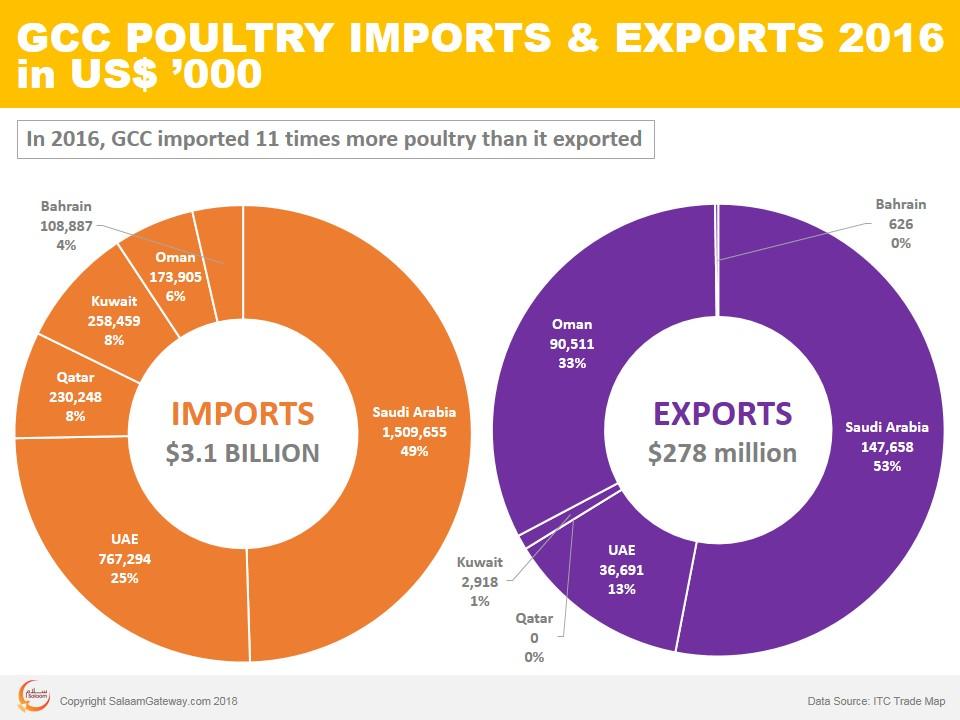How self-sufficient is Saudi Arabia in poultry production?
The Saudi government has set a strategic goal of domestic poultry production to meet 60 percent of local consumption in the next five years. Self-sufficieny currently stands at around 50 percent.
Total domestic poultry consumption in 2017 is estimated at 1.51 million metric tons (MT), according to the United States Department of Agriculture (USDA) that regularly publishes sector-related reports covering markets that are reached by U.S. businesses.
Around half of local consumption in 2017 was met by domestic suppliers. Saudi broiler meat production, which refers to any chicken or fowl bred and raised for its meat, was estimated at 760,000 metric tons (MT) last year while imports were around 790,000 MT, according to the USDA.
The Saudi government is implementing various plans and policies to help the domestic market increase its poultry production.
At the government level:
1. In January 2017 custom duties on poultry entering the country were raised to 20 percent from 5 percent. The impact of this big increase on poultry imports is yet to be seen as full-year 2017 official trade figures are not yet available.
2. A $533 per MT export tax on poultry is levied.
3. Animal feed is subsidised and rebates are extended for the puchase of poultry equipment.
At the private-sector level:
The country's largest poultry producers are expanding operations.
1. Al Watania, Saudi's biggest broiler operator, is building a mega poultry farm scheduled to start by 2020. The farm is expected to increase the company's daily production from 820,000 to 1 million broilers.
2. Fakieh Poultry, the second biggest operator, expects its new farm to be operational by 2022. It is targeting a 300,000 daily increase in production from its current estimated 550,000 chickens.
HALAL CERTIFICATION
All poultry (and meat) imports into Saudi Arabia must be halal slaughtered. Slaughtering has to take place in a licensed facility and in accordance with Gulf Standards Organisation's (GSO) GS 993/1998 on "Animal slaughtering requirements according to Islamic law". Halal certification must be issued by approved certifiers whose list is held by the Saudi Food and Drug Authority.
Saudi Arabia is responsible for half of the Gulf Cooperation Council's (GCC) poultry imports. The kingdom is the GCC's most populous nation, with around 33 million residents. It is also the Middle East's biggest economy with gross domestic product (GDP) of $646.44 billion in 2016, according to the World Bank.
